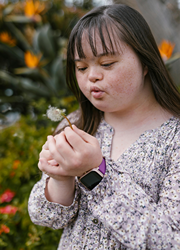Could Stem Cell Therapy Help Reduce Behavioral Symptoms in Autism?
There is a growing interest in stem cell therapy signals a potential shift in autism care. Conventional methods manage behaviors and teach coping skills but often overlook deeper neurological or cellular causes, leaving a gap that treatments like stem cell therapy seek to fill.
For families feeling limited by available options, this treatment may bring fresh hope, provide relief, and help them feel supported in their journey.
So, how does stem cell therapy work, and what could it mean for families navigating autism care? Let’s unpack the science, benefits, risks, and how stem cell therapy care compares to current treatments.
Understanding Autism Spectrum Disorder
Autism Spectrum Disorder (ASD) is a condition that influences an individual’s behavior, communication, and social interactions. Symptoms can vary widely. These may include being sensitive to sensory input, repeating certain behaviors, and having trouble forming relationships.
Existing therapies focus on symptom management. They provide critical support but don’t tackle the underlying issues contributing to these challenges. This leaves a gap in care that many families feel acutely.
What is Stem Cell Therapy?
Stem cell therapy uses mesenchymal stem cells (MSCs) to repair damaged tissue and promote healing. MSCs, derived from ethically collected umbilical cord tissue, are particularly promising for autism treatment. These cells can repair damaged neural connections and enhance brain communication pathways.
MSCs release molecules that foster the formation of blood vessels, enhance oxygen flow, and alleviate brain inflammation. This creates a fertile environment for repairing neural pathways tied to speech, memory, and behavior.
Current Research on Stem Cell Therapy and Autism
Research indicates that MSCs can calm inflammation, repair neural pathways, and strengthen brain communication networks. These mechanisms may explain improvements reported in areas like:
- Social Engagement: Enhanced eye contact and more natural interactions.
- Communication: Stronger verbal skills, from reducing repetitive speech to expanding vocabulary.
- Focus and Learning: Better attention spans and cognitive responsiveness.
Families who have explored stem cell therapy reveal meaningful progress, such as children engaging more socially, communicating effectively, and handling sensory triggers with greater ease.
Benefits and Limitations
Stem cell therapy improves inflammation and oxygen flow, showing better results on diagnostic measures like the Childhood Autism Rating Scale (CARS) in clinical trials. However, its limitations must be recognized, and ongoing research is needed to enhance its application and understand long-term effects.
Potential Benefits of Stem Cell Therapy for Autism
Stem cell therapy for autism offers families the chance for meaningful daily improvements. Its potential benefits include:
- Improved Behavior: Fewer meltdowns and better handling of stressful situations.
- Enhanced Communication: Increased interest in sounds, words, and conversations.
- Independence: Progress in self-care routines like dressing, eating, and hygiene.
- Sensory Comfort: Gradual tolerance to triggers like noise, touch, or crowded spaces.
Outcomes depend on factors like age, genetics, and lifestyle. Families exploring this option should ensure providers follow best practices in regenerative medicine.
Risks and Ethical Considerations
While promising, stem cell therapy isn’t without risks. Families should weigh potential side effects, such as mild fevers or localized discomfort, and discuss concerns like pre-existing cancer risks with their provider.
Fortunately, ethical concerns often tied to stem cell use are largely avoided here. Stem cell sources like MSCs are obtained responsibly from umbilical cords—materials that are typically discarded after childbirth.
Alternative Treatment Options for Autism
Stem cell therapy care works best alongside other proven treatments, ensuring a well-rounded approach to autism care. Key alternatives include:
- Behavioral Therapies: Programs like applied behavior analysis (ABA) target communication, social, and adaptive skills.
- Dietary Adjustments: Gluten-free or casein-free diets may ease symptoms, particularly with professional guidance.
- Occupational Therapy: Helps develop daily living skills and manage sensory integration.
- Speech Therapy: Supports communication, enabling individuals to express needs and engage socially.
- Medications: Can manage co-occurring conditions like anxiety or ADHD, supporting smoother daily functioning.
A combined approach ensures a more tailored care plan to address the complex challenges of autism effectively.
Moving Forward: Could Stem Cell Therapy Be Right for You?
Stem cell therapy offers families a new way to envision autism treatment, focusing on foundational support for symptoms rather than symptom management alone. For those who feel conventional options have fallen short, stem cell therapy offers hope, representing a significant step forward.
If you’re still searching for the right support, stem cell therapy could offer renewed hope. With advancements in research and the use of ethical stem cell sources, professionals in autism care can help you understand this promising approach and determine if it’s suitable for your family.
Interested in learning more? Visit Swiss Medica Clinic for a free consultation and explore how stem cell therapy can support your journey.





